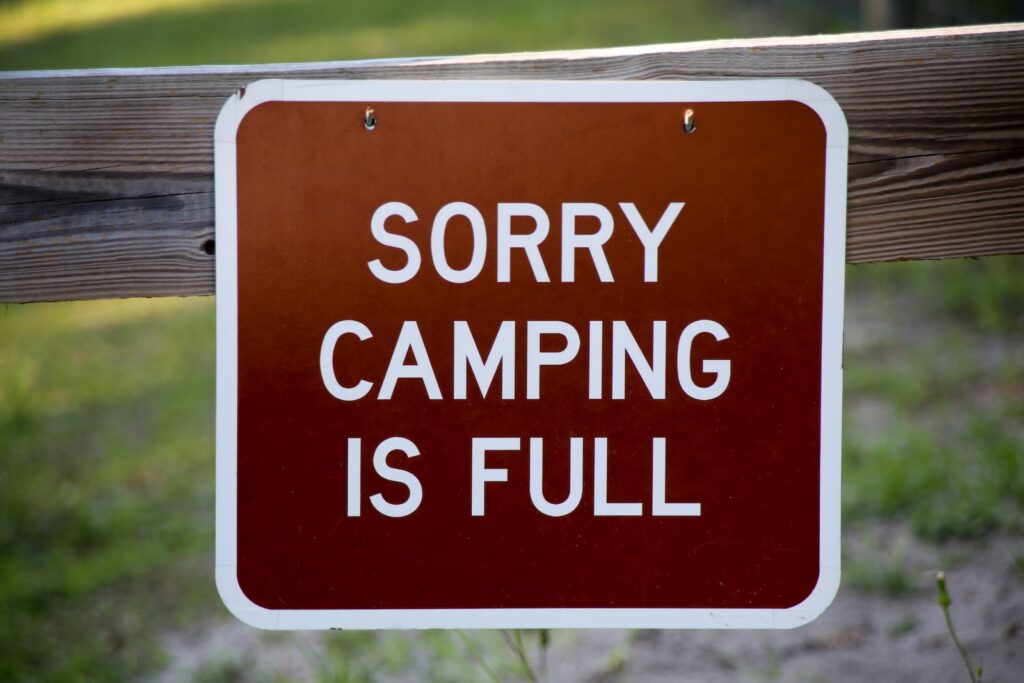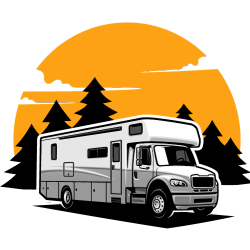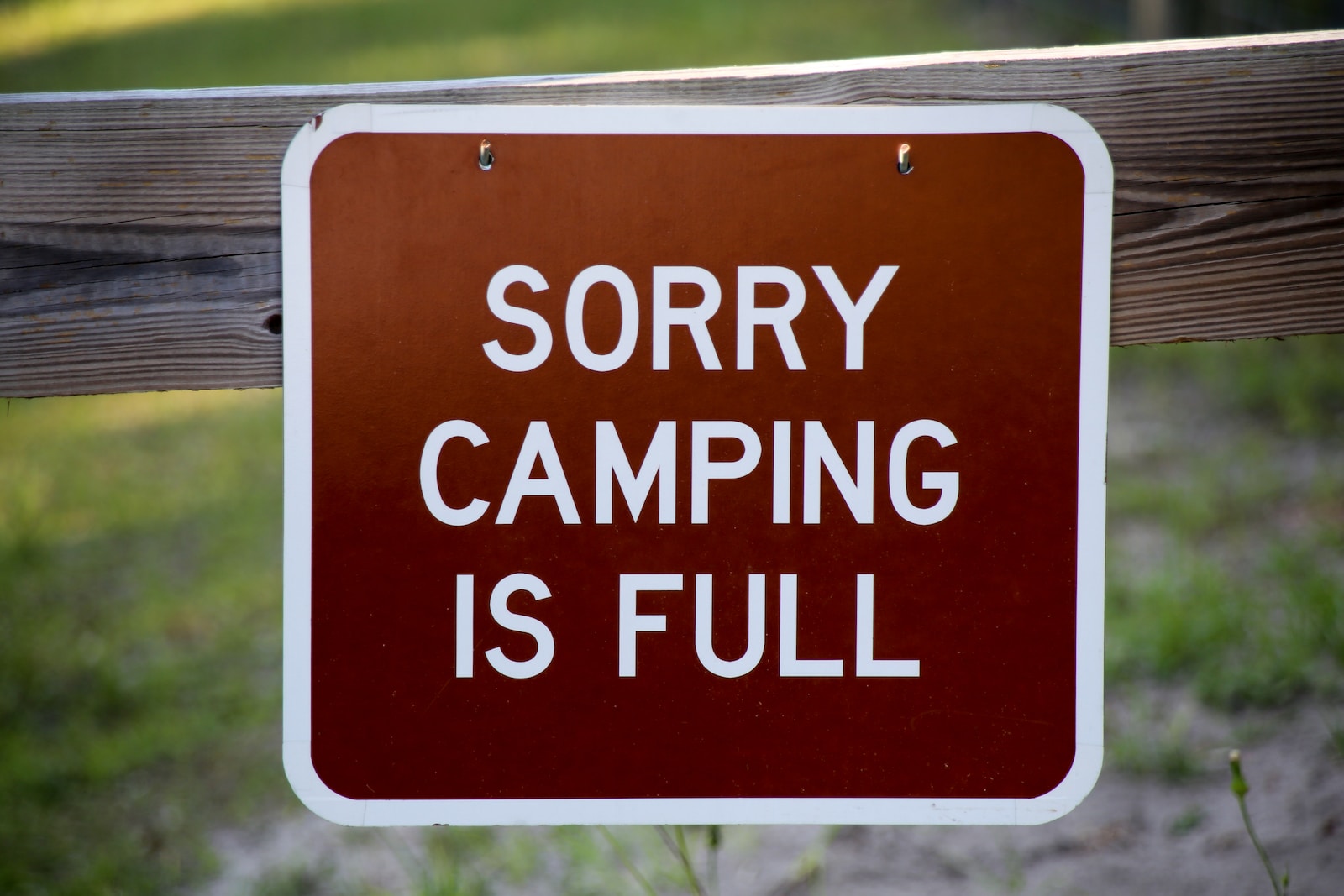Are you an avid traveler who loves the freedom and adventure of RV camping? If so, then “A Comprehensive Guide to Finding the Perfect RV Campsite” is your go-to resource for planning your next RV trip. In this article, you will learn the essential factors to consider when selecting a campsite, such as your budget, length of stay, desired proximity to planned activities, and preferred camping style. Whether you prefer campgrounds, RV parks, RV resorts, or free camping options, we’ve got you covered. Discover valuable resources like websites, RV apps, and Facebook groups to help you find the perfect RV campsite that meets all your needs. With our guide, your next RV adventure will be one for the books!
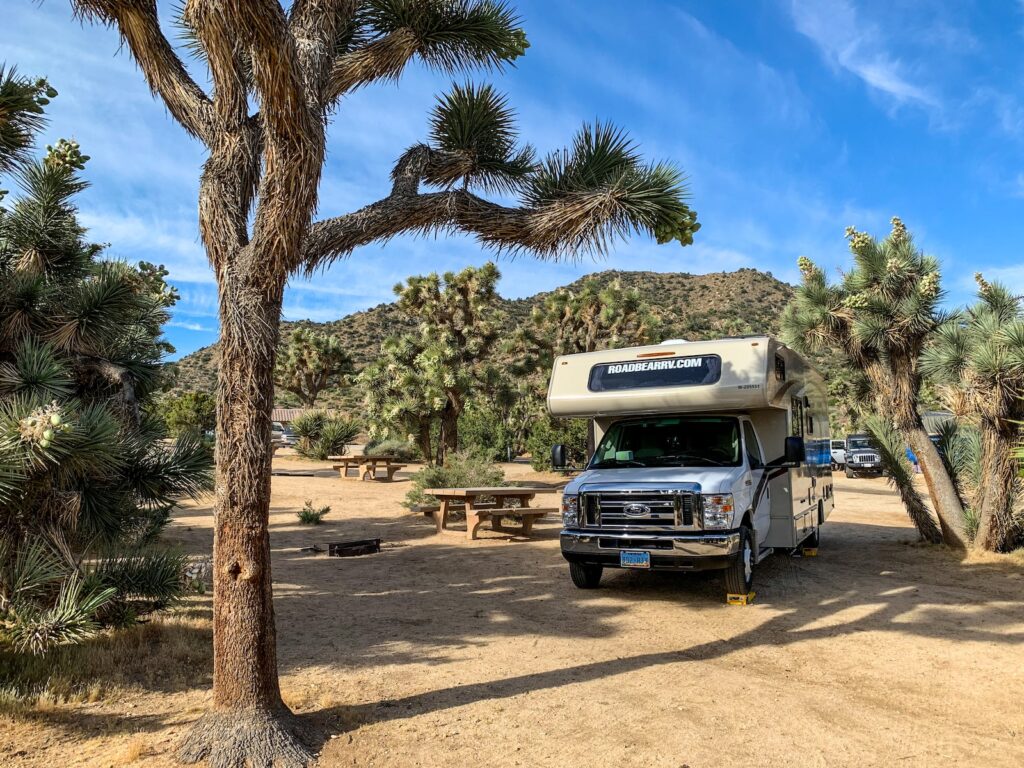
Understanding Your Needs in Finding the Perfect RV Campsite
When it comes to finding the perfect RV campsite for your next adventure, it is essential to first understand your specific needs. This will help you narrow down your options and ensure that you have an enjoyable and comfortable stay. There are a few key factors to consider: budget, length of stay, proximity to planned activities, and your camping style.
Budget
Setting a budget is crucial when planning your RV camping trip. Campsite costs can vary greatly depending on location, amenities, and time of year. By determining your budget beforehand, you can focus your search on campgrounds that fit within your financial parameters. Additionally, be sure to consider any additional costs such as fuel, groceries, and entertainment expenses.
Length of Stay
Knowing how long you plan to stay at a campsite is another important factor to consider. Some campgrounds have restrictions on the length of stay, while others may offer weekly or monthly rates for extended stays. Consider your travel itinerary and choose a campsite that aligns with the duration of your trip.
Proximity to Planned Activities
Do you have any specific activities or attractions in mind for your RV camping trip? Whether it’s hiking, fishing, visiting national parks, or exploring local towns, consider the proximity of your chosen campsite to these activities. Being close to the attractions you’re interested in can save you time and make your overall experience more enjoyable.
Camping Style
Understanding your camping style will also help you narrow down your options. Are you looking for a peaceful and secluded spot in nature, or do you prefer a campsite with amenities and activities? There are various types of RV camping, each catering to different preferences. By knowing your style, you can choose a campsite that aligns with your needs and preferences.
Types of RV Camping
Now that you have a better understanding of your needs, let’s explore the different types of RV camping available. Understanding these options will give you a better idea of what to expect and help you make an informed decision.
Campgrounds
Campgrounds are a popular choice among RV campers. They provide designated campsites with varying levels of amenities, such as electric hookups, water connections, picnic tables, fire pits, and even shower facilities. Campgrounds often offer a range of recreational activities, including hiking trails, swimming areas, and playgrounds. They are a great option for those who enjoy nature and the camaraderie of other campers.
RV Parks
RV parks are similar to campgrounds but tend to offer more amenities and facilities. They often have full hookups for water, electricity, and sewer, making it more convenient for RVers. In addition to the basic amenities, RV parks may provide amenities such as swimming pools, clubhouses, laundry facilities, and organized activities. RV parks are an excellent choice for those seeking a comfortable and well-equipped camping experience.
RV Resorts
For those looking for a more luxurious RV camping experience, RV resorts are the way to go. These resorts often provide high-end amenities such as spas, golf courses, restaurants, and entertainment options. RV resorts are perfect for those who want a blend of camping and resort-style living.
Free Camping Options
If you’re on a tight budget or prefer a more rustic camping experience, free camping options might be worth considering. These options include boondocking on public lands, dispersed camping in national forests, or staying at designated free camping areas. While these options may have limited or no amenities, they offer the chance to fully immerse yourself in nature and enjoy the solitude and tranquility that comes with it.
Campground Selection Criteria
Now that we’ve explored the different types of RV camping, let’s dive into the criteria to consider when selecting a campground. Keep these factors in mind to ensure you choose a campsite that meets your needs and expectations.
Location
Location is perhaps the most crucial factor to consider when selecting a campground. Determine whether you want to be in a remote, natural setting or if you prefer to be closer to towns and attractions. Consider the distance from your planned activities and the accessibility of the campground. Also, think about the climate and weather conditions of the area, especially if you have specific preferences or concerns.
Amenities
Consider what amenities are essential for your comfort and enjoyment during your stay. Do you need access to electricity, water, and sewer hookups? Are you looking for campground facilities like showers, bathrooms, laundry, or a camp store? Depending on your needs, make sure the campground you choose offers the amenities that are important to you.
Reviews and Ratings
Before making a decision, it’s wise to read reviews and ratings of the campgrounds you’re considering. Check websites like Campendium or Good Sam to get an idea of other campers’ experiences. Pay attention to comments about cleanliness, staff friendliness, noise levels, and overall atmosphere. Reviews provide valuable insights that can help you make an informed choice.
Availability and Reservations
Some campgrounds may require reservations, especially during peak travel seasons. Before finalizing your plans, check the availability of campsites and whether reservations are required. It’s essential to plan ahead, especially if you have specific dates or preferences. Keep in mind that popular campgrounds can fill up quickly, so it’s best to secure your spot well in advance.
Researching Campgrounds
Now that you know what to look for in a campground, let’s explore different resources and tools to help you find the perfect RV campsite.
Websites for Campground Reviews
Websites like Campendium and Good Sam are valuable resources for RV campers. These platforms allow you to search for campgrounds based on location and read detailed reviews from other RVers. You can get insights into the facilities, amenities, and overall experience of different campgrounds. Take advantage of these websites to make an informed decision about your campsite selection.
RV Apps for Finding Campgrounds
In addition to websites, there are also several mobile apps designed specifically for RV campers. Allstays and Campendium are popular apps that provide comprehensive campground information, including amenities, reviews, and photos. These apps often include filtering options, allowing you to search for campgrounds based on your specific preferences. Downloading these apps can be a convenient way to find and research campgrounds while on the go.
Social Media Groups and Forums
Facebook groups and online forums dedicated to RV camping can be a treasure trove of information. Joining these groups allows you to connect with fellow RVers, ask for recommendations, and read about others’ experiences. RVers are often eager to share their knowledge and expertise, making these groups a valuable resource for finding hidden gems and lesser-known campgrounds.
RV Clubs and Memberships
Consider joining RV clubs and memberships that offer discounted rates and exclusive access to campgrounds. Passport America and Harvest Hosts are two popular examples. Passport America offers discounted rates at participating campgrounds, making it an excellent option for budget-conscious travelers. Harvest Hosts, on the other hand, allows RVers to stay overnight at wineries, farms, and other unique locations, providing a more immersive and memorable camping experience.
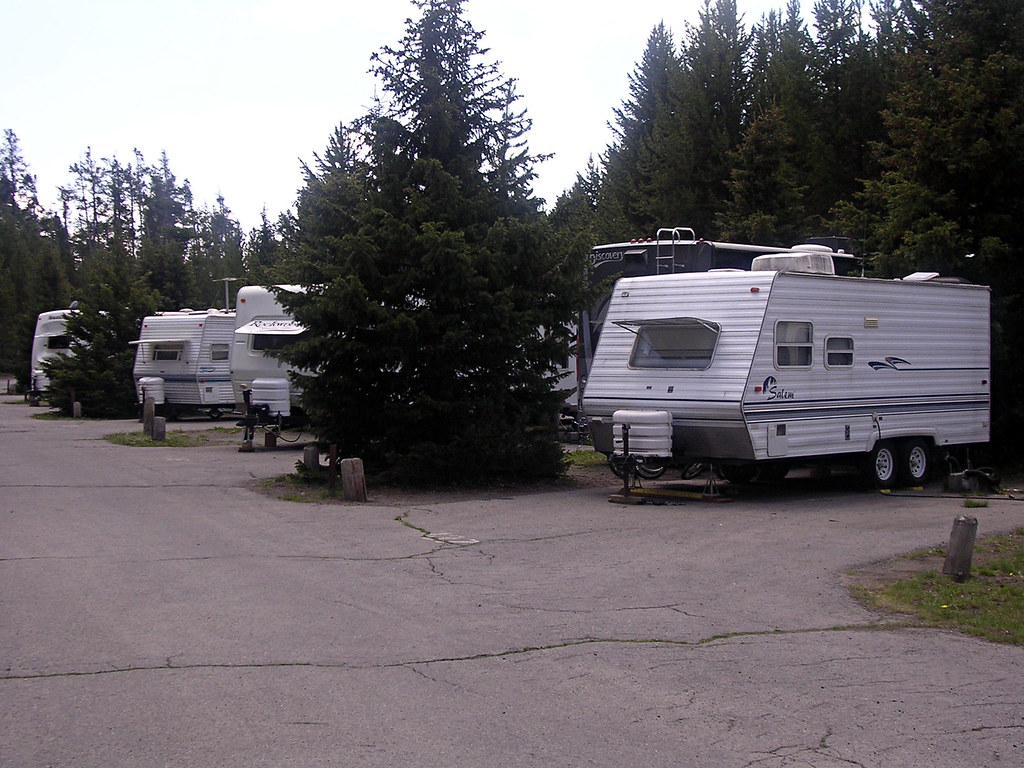
Considering RV Park Rules and Policies
When staying at RV parks and campgrounds, it’s important to be aware of and adhere to the rules and policies in place. Familiarize yourself with these guidelines to ensure a peaceful and enjoyable stay.
Pets
If you’re traveling with pets, be sure to check the campground’s pet policies. Some campgrounds may have breed restrictions, leash requirements, or designated pet areas. It’s essential to keep your pets under control and clean up after them to respect the campground and other campers.
Quiet Hours
Most campgrounds have designated quiet hours, typically during the late evening and early morning hours. These quiet hours ensure a peaceful atmosphere for all campers. Be considerate of your fellow campers and refrain from excessive noise during these times.
RV Size Restrictions
Not all campsites can accommodate large RVs or trailers, so it’s important to check for size restrictions. Consider the length, width, and height of your RV and make sure the campground can accommodate your vehicle. Some campgrounds may have size restrictions due to narrow roads, low bridges, or limited parking spaces.
Generator Usage
If your RV has a generator, familiarize yourself with the campground’s generator usage policies. Some campgrounds restrict generator use to specific hours to maintain a peaceful and quiet environment. Be mindful of these policies and considerate of your neighbors when using your generator.
Campfire Regulations
Campfires are a quintessential part of the camping experience for many RVers. However, it’s important to follow the campground’s campfire regulations. Some campgrounds may have restrictions on the size and type of firewood used or require fire rings for safety purposes. Always make sure you fully extinguish your campfire before leaving it unattended.
Waste Disposal and Recycling
Proper waste disposal and recycling are essential to keeping campgrounds clean and preserving the environment. Familiarize yourself with the campground’s waste disposal and recycling policies. Most campgrounds have designated areas for trash and recyclables, and it’s crucial to dispose of your waste properly.
Planning the Route for RV Camping
Once you have chosen your desired campground, it’s time to plan your route to get there. Consider the following factors to ensure a smooth and enjoyable journey.
Mapping Tools and GPS Apps
Utilize mapping tools and GPS apps to plan your route and navigate to your chosen campground. Online maps like Google Maps are excellent resources for general route planning, while GPS apps designed specifically for RVers, such as RV Trip Wizard or RV Life, offer additional features like RV-friendly routes, low clearance warnings, and campground locations.
Scenic Routes vs. Direct Routes
While direct routes may be the quickest way to reach your destination, consider taking scenic routes whenever possible. RV travel offers the opportunity to appreciate and enjoy stunning landscapes throughout your journey. Scenic routes often have more beautiful sights to see, making the journey just as enjoyable as the destination.
Toll Roads and Fuel Costs
Research toll roads along your route and consider the associated costs. Some toll roads can add up, especially if you are traveling long distances. Additionally, factor in fuel costs when planning your route. Gas prices can vary from one area to another, so estimate your fuel expenses and plan accordingly.
Road Conditions and Restrictions
Before hitting the road, check for any road closures, construction, or restrictions that may affect your route. Inclement weather, such as heavy rains or snowstorms, can also impact road conditions. Stay informed through local news and online resources to ensure you choose the safest and most convenient route.
Rest Stops and Service Stations
Account for rest stops and service stations along your route to ensure you have opportunities to refuel, take breaks, and rest if needed. Plan your stops strategically to make the most of your trip. Rest stops often offer amenities such as restrooms, picnic areas, and even RV dump stations, allowing you to freshen up and continue your journey smoothly.

Determining Campsite Requirements
When selecting a specific campsite within your chosen campground, there are several factors to consider to ensure you have the best possible camping experience.
Hookups and Utilities
Evaluate your specific needs for hookups and utilities. Determine if you require electricity, water, and sewer hookups or if you can manage with limited or no hookups. Some campgrounds offer full hookups, while others may have partial or no hookups depending on their amenities. Ensure that the campsite you choose can accommodate your specific requirements.
Site Size and Accessibility
Consider the size of your RV or trailer and choose a campsite that can accommodate it comfortably. Look for sites with enough space for your vehicle and any additional equipment like awnings or slide-outs. Also, assess the accessibility of the campsite, including factors such as the road leading to it, parking space, and any potential obstacles.
Privacy and Shade
Take note of the level of privacy and shade offered by different campsites. Some sites may be more secluded and offer natural barriers between neighboring campsites, while others may have a more open layout. Consider your preference for privacy and determine how much shade you desire during your stay.
View and Surroundings
The view from your campsite can greatly enhance your camping experience. Determine whether you prefer a site with a scenic view, such as a lake or mountains, or if you prefer a more wooded area. Additionally, consider the surroundings of the campground, including nearby trails, bodies of water, or other attractions that may add to your overall enjoyment.
Cellular Coverage and Internet Availability
In today’s digital age, access to cellular coverage and internet connectivity is important for many RV campers. Check the cellular coverage and internet availability in the area where the campground is located. Reliable connectivity can be essential, especially for remote workers or those who need to stay connected with friends and family.
Security and Safety
The safety and security of the campground should be a top priority. Research the campground’s security measures, such as gated entrances or security patrols. Additionally, assess the safety of the surrounding area, including whether it is prone to natural disasters or wildlife encounters. Choose a campsite that offers a sense of security and peace of mind.

Preparing for Arrival and Departure
To ensure a smooth and stress-free RV camping experience, it’s important to be prepared for your arrival and departure from the campground. Consider the following aspects to make the process seamless.
Check-In and Check-Out Times
Familiarize yourself with the campground’s check-in and check-out times. Arriving within the specified check-in hours ensures that there will be staff available to assist you. Similarly, adhering to check-out times allows the next campers to have access to the site promptly. Make sure you plan your travel accordingly to avoid any delays.
Navigating the Campsite
If possible, review a campground map before your arrival to familiarize yourself with the layout. Note the location of your assigned campsite and plan your route accordingly. Pay attention to any specific instructions for navigating the campsite, such as one-way roads or designated parking areas.
Setting Up and Leveling the RV
Upon arrival, it’s time to set up your RV and make it level. Use leveling blocks or ramps to ensure your RV is stable and comfortable. Follow the manufacturer’s instructions and take your time to properly level your vehicle. This will help with preventing any issues during your stay, such as appliances not working correctly or doors not closing properly.
Connecting Utilities
If your campsite has hookups available, connect your RV to the necessary utilities such as water, electricity, and sewer. Follow the campground’s guidelines and take any necessary precautions when connecting your RV. Double-check the connections to ensure everything is properly attached and functioning.
Packing and Unpacking
While setting up your campsite, it’s essential to pack and unpack your belongings efficiently. Unload any necessary equipment, such as camping chairs, outdoor tables, or grills, to create a comfortable and functional outdoor living space. Organize your belongings inside the RV to maximize space and ease of access.
Leaving No Trace
One of the essential principles of camping is leaving no trace. It’s crucial to clean up after yourself and leave the campsite in the same condition as when you arrived. Dispose of trash properly, respect nature by avoiding unnecessary disturbances, and follow any campground regulations regarding waste disposal. Leaving no trace ensures that future campers can enjoy the beauty of the campground as well.
Staying Organized and Comfortable
To make the most of your RV campsite experience, it’s important to stay organized and create a comfortable living space. Consider the following aspects to enhance your camping experience.
RV Storage and Organization
Efficient storage and organization inside your RV can make all the difference in your camping experience. Utilize storage compartments, bins, and organizers to maximize space and keep your belongings neatly arranged. This will prevent clutter and make it easier to find what you need during your stay.
Outdoor Living Space
Create an inviting and functional outdoor living space by setting up outdoor furniture, such as chairs and tables. Consider adding outdoor rugs or mats to define your living area and prevent tracking dirt inside the RV. Enhance your outdoor space with string lights, lanterns, or a portable fire pit to create a cozy atmosphere.
Weather Preparedness
Be prepared for various weather conditions during your camping trip. Pack appropriate clothing layers, including rain gear and warm clothes, to accommodate changing weather patterns. Consider bringing shade structures like awnings or umbrellas for hot and sunny days, as well as tarps to protect against rain or provide additional shade.
Entertainment and Recreation
To keep yourself entertained during your stay, pack board games, cards, books, or other forms of entertainment that you enjoy. Consider bringing outdoor recreational equipment like bikes, kayaks, or fishing gear, depending on the activities available in the area. Engaging in various activities will ensure that everyone has a fun-filled camping experience.
Cooking and Dining Options
Take advantage of your RV’s kitchen facilities or outdoor cooking equipment to prepare delicious meals during your camping trip. Plan your meals and pack the necessary ingredients and cooking utensils. Consider portable grills, camp stoves, or Dutch ovens for versatility. Don’t forget to bring picnic supplies like plates, utensils, and cups for enjoyable dining experiences.
Cleaning and Waste Management
Maintaining cleanliness and proper waste management is essential for a comfortable camping experience. Bring cleaning supplies and regularly clean the interior of your RV to keep it tidy. Dispose of waste properly, including food waste and trash, to prevent attracting wildlife and keep the campground clean. Follow any recycling guidelines set by the campground to reduce your environmental impact.
Making the Most of Your RV Campsite Experience
While your chosen campground offers its own unique experiences, there are several ways to make the most of your RV campsite experience.
Exploring the Surrounding Area
Take the time to explore the surrounding area of your campsite. Go for hikes, bike rides, or nature walks to appreciate the beauty of the outdoors. Visit nearby attractions, national parks, or local landmarks to immerse yourself in the local culture and history. Embrace the adventure and make memories outside the campground.
Socializing with Other RVers
One of the joys of RV camping is the opportunity to connect with fellow RVers. Strike up conversations with your neighbors, join campground activities or potlucks, and share stories and experiences. RVers are often friendly and happy to offer recommendations or tips for the area. Embrace the community and enjoy the camaraderie of fellow campers.
Respecting Nature and Wildlife
As nature lovers, it’s crucial to respect the environment and wildlife around you. Follow the campground’s guidelines for interacting with nature, such as staying on designated trails and respecting wildlife habitats. Do not feed or approach wildlife, as this can disrupt their natural behaviors and pose a threat to both animals and humans.
Participating in Campground Activities
Many campgrounds offer organized activities and events for campers to enjoy. Take advantage of these opportunities to have fun and connect with other campers. Activities may include bonfires, live music, arts and crafts, sports, or educational presentations. Participating in campground activities can enhance your camping experience and create lasting memories.
Learning from Experienced RVers
If you’re a new RVer or looking to expand your knowledge and skills, don’t hesitate to learn from more experienced RVers. Strike up conversations with seasoned campers and ask for tips, advice, or recommendations on various aspects of RV camping. Experienced RVers are often eager to share their wisdom and help others make the most of their journeys.
Capturing Memories and Sharing Experiences
Lastly, don’t forget to capture the special moments of your RV campsite experience. Take photos of the breathtaking landscapes, group gatherings, and memorable encounters. Keep a travel journal or blog to document your adventures and reflect on the memories later. Share your experiences with friends and family, inspiring them to embark on their own RV camping adventures.
By considering your needs, researching campgrounds, and being prepared, you can find the perfect RV campsite and create unforgettable memories. Whether you prefer a tranquil stay in the heart of nature or a luxurious resort-style experience, there is a campsite that will cater to your desires. Enjoy the freedom and joy of RV camping, and embrace the beauty and adventure that awaits you. Happy camping!
